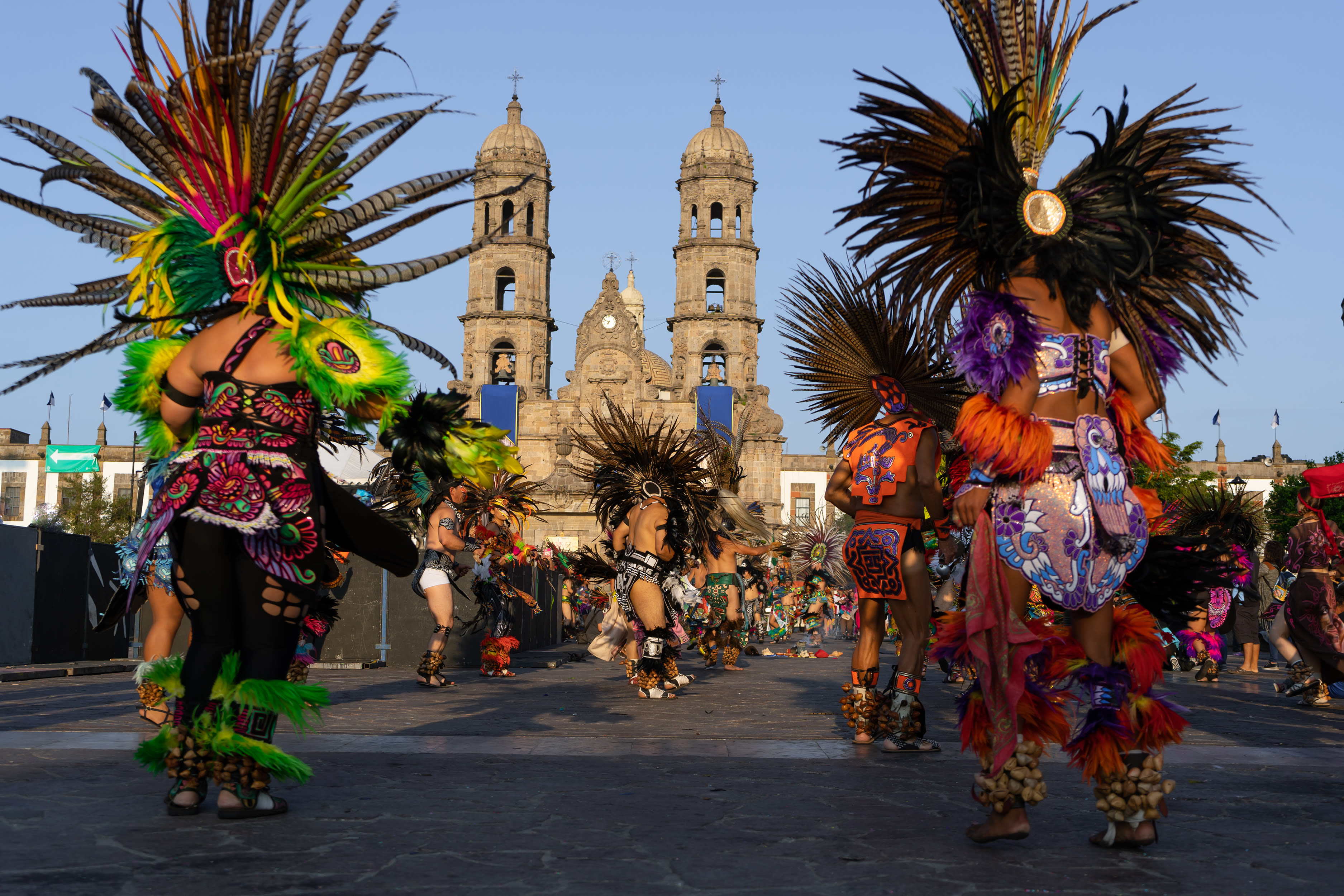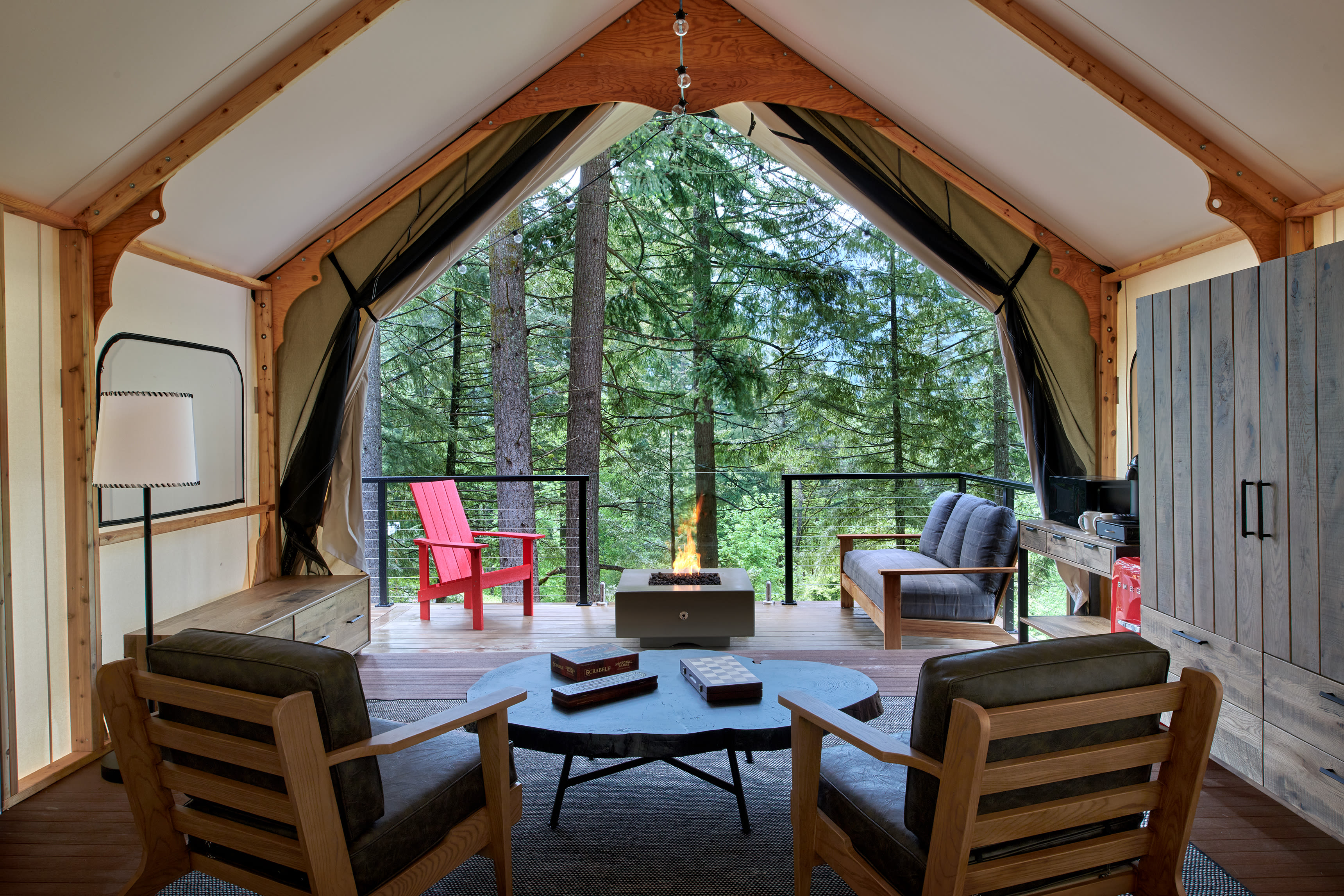Don't Blink: Here's One More Way to See the 2017 Eclipse
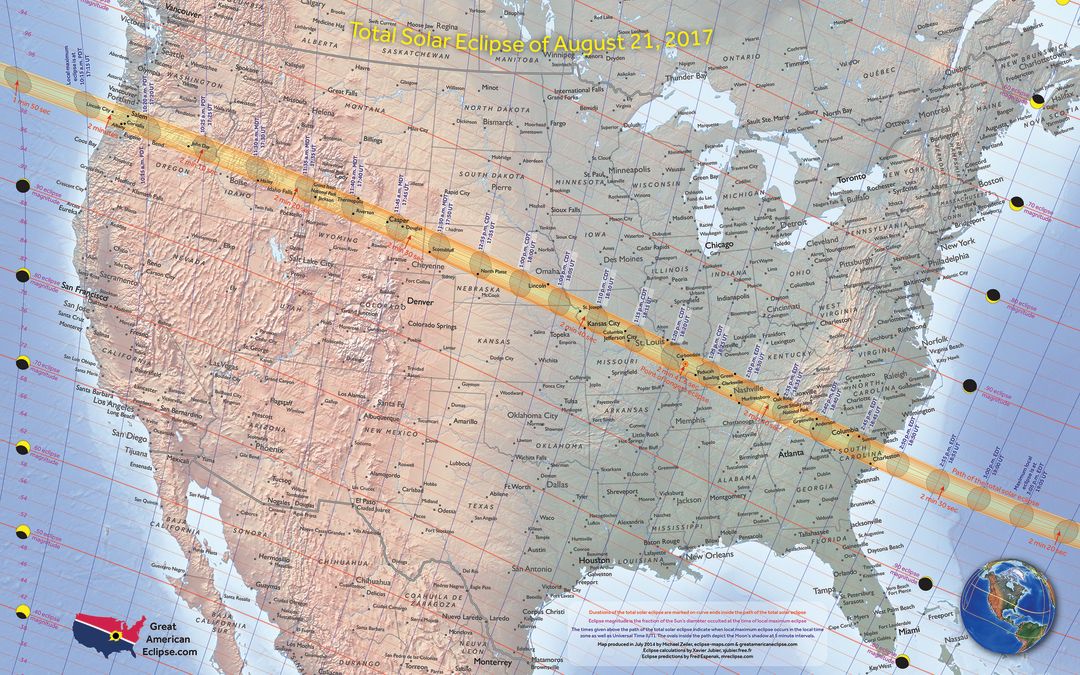
The path of next summer's total eclipse passes directly over Lincoln City, Salem, and John Day in Oregon—continuing on through Casper, St. Louis, Nashville, and Charleston, South Carolina.
Image: Great American Eclipse
* Editor's note: our original post, published on November 1, listed November 7 as the first day Oregon campers could reserve sites along the path of totality. On November 2, Oregon State Parks issued a news release detailing an exception to its normal nine-month advance reservation system. Given anticipated high demand immediately preceding the eclipse, the agency "will not accept reservations for Aug. 17–21, 2017 until November 17, 2016."
It’s a rare person who knows what they’re going to eat for breakfast next week, let alone what they’ll be doing on a Monday morning nearly 300 days from now. But for a select few, their plans for August 21, 2017 have been set in stone for years.
That's the day a total solar eclipse—popularly dubbed the Great American Eclipse—makes landfall in Oregon, continuing across the state over the course of 10 minutes.
Here's the timeline: at approximately 9:48 a.m., just off the central coast of Oregon, the moon will start to cross the sun’s path, engulfing our star bit by bit. Just after 10:15 a.m. star and satellite make landfall in Depoe Bay, and the morning will be thrown into darkness. By 10:19 a.m., the eclipse will pass over central Oregon, and by 10:25 a.m., it’ll say goodbye to our fair state as it makes its way across the country.
Depending on how close you are to the central line, you may experience totality—as in, total darkness—for up to two minutes. You just have to be in the Goldilocks zone—which happens to cut a 90-mile wide path from Depoe Bay to Ontario, Oregon—in order to get the full experience. As obsessives tell it, a total eclipse is incomprehensibly special and beautiful: something one has to see to really understand.
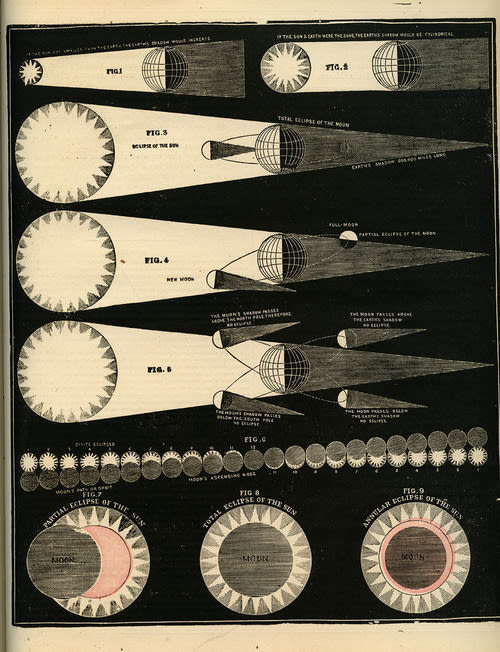
Still-handy 19th century eclipse diagrams.
While total solar eclipses are relatively common in the grand scheme of things—occurring approximately every 18 months somewhere in the world—what makes this so extraordinary is that it’s the first total eclipse in the continental United States since 1979. And it’s cutting a path that is easy for enthusiasts the world over to enjoy.
The rarity of such an event has led to a bit of a frenzy here in Oregon. Hotels in and around Madras—one of the best places in the country to catch the event—have been sold out for years, and all along the totality path, hotel rooms are being booked for hundreds of dollars per night.
While you can see a partial eclipse (with eye protection) from anywhere in the U.S. (including Portland), why miss the once-in-a-lifetime chance to catch the real thing, if you can? Lucky for us, it’s not too late to get in on the action. There's a simple, affordable alternate to the long odds of booking a hotel room: camping.
Stake your claim, starting Nov 17
For a fraction of the cost of renting a questionable hotel room somewhere along the path, those in the know can scoop up lodging—a cabin, a yurt, or hell, just a patch of dirt to pitch your tent on—for the duration of your eclipse trip.
The process, however, requires some explanation and a few logistical considerations. For one, while Oregon Parks and Recreation is preparing for the influx of eclipse-related reservations, they are not lifting the nine-month rule for reservations. According to Chris Havel, the Associate Director of Oregon Parks and Recreation, “You can make reservations anywhere from one day to nine months ahead of the first day of your trip.”
Normally, that would mean that Nov 7, 2016, would be the first open window to stake that claim through ReserveAmerica, the third-party online reservation system for Oregon campsites. Oregon State Parks, anticipating high demand for eclipse-specific dates, has decided to make an event-specific exception to this policy. As announced earlier this month, the first day that prospective campers can book the nights of Aug 17–21, 2017, at Devil's Lake, Beverly Beach, South Beach, Silver Falls, Detroit Lake, the Cove Palisades, and Farewell Bend campgrounds will be Nov 17, 2016.
Havel warns, though, that there are penalty fees for those who only intend to make good on the night immediately before or after the eclipse. “If you’re making these reservations for a date before you plan on being there, and you decide to cancel every day before the date you actually arrive, you get charged.”
Things to keep in mind before you book
Sold on roughing it for the big event? Oregon Parks and Recreation has put together a handy little map of state-run campgrounds that fall within (or very close to) the totality path.
While there are 14 campgrounds that fall within the path—or just on the edge—some grounds are better than others. Even if you’re in the totality zone, the great, towering Douglas firs, masterful mountain peaks, and lovely low valleys will get in the way of your view. This is the one time we recommend you avoid our verdant old-growth forests and instead find a spot with the clearest line of sight possible. We recommend either the coast or the desert.
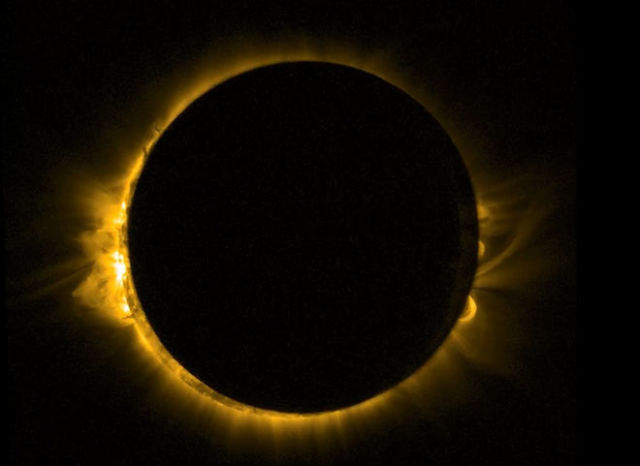
A total solar eclipse (March 20, 2015) captured by the European Space Agency's Proba-2 satellite.
Additionally, keep the weather in mind. Even if you get a great spot free of Doug firs, there’s not a lot you can do if it’s cloudy out, save for maybe driving like a bat out of hell to a sunnier locale (which we seriously do not recommend). Try to make a reservation at a campground where sun is practically guaranteed. While the coast gets plenty of sunshine in August, the weather there is much more unpredictable compared to the high desert of central and eastern Oregon.
Going, going, gone
Havel says Oregon Parks and Recreation anticipates the campsites will go quickly, so make sure you don’t delay booking. While you could theoretically drive down to Salem and watch the moon swallow the sun like an apocalyptic event, this eclipse is special enough to make the effort. Besides, if you miss it, you’ll have to wait until 2045 for the next total solar eclipse to hit the United States. And that one is in California.
The Total Solar Eclipse of August 21, 2017 - fly along with the shadow! from Eclipse2017.org on Vimeo.

